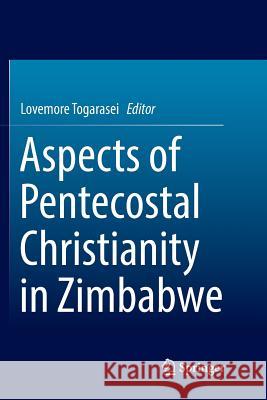Aspects of Pentecostal Christianity in Zimbabwe » książka
topmenu
Aspects of Pentecostal Christianity in Zimbabwe
ISBN-13: 9783030087326 / Angielski / Miękka / 2018 / 234 str.
Kategorie:
Kategorie BISAC:
Wydawca:
Springer
Język:
Angielski
ISBN-13:
9783030087326
Rok wydania:
2018
Dostępne języki:
Ilość stron:
234
Waga:
0.34 kg
Wymiary:
23.39 x 15.6 x 1.3
Oprawa:
Miękka
Dodatkowe informacje:
Wydanie ilustrowane











